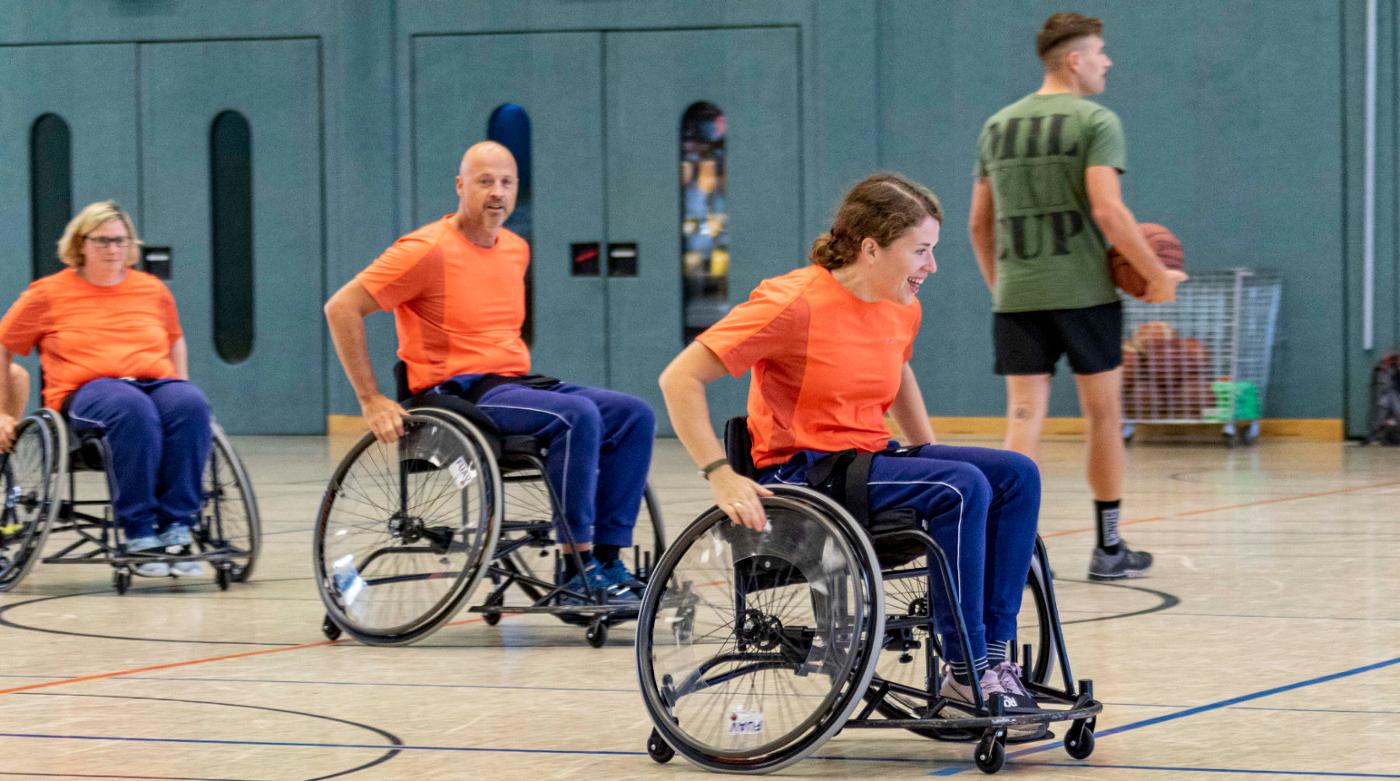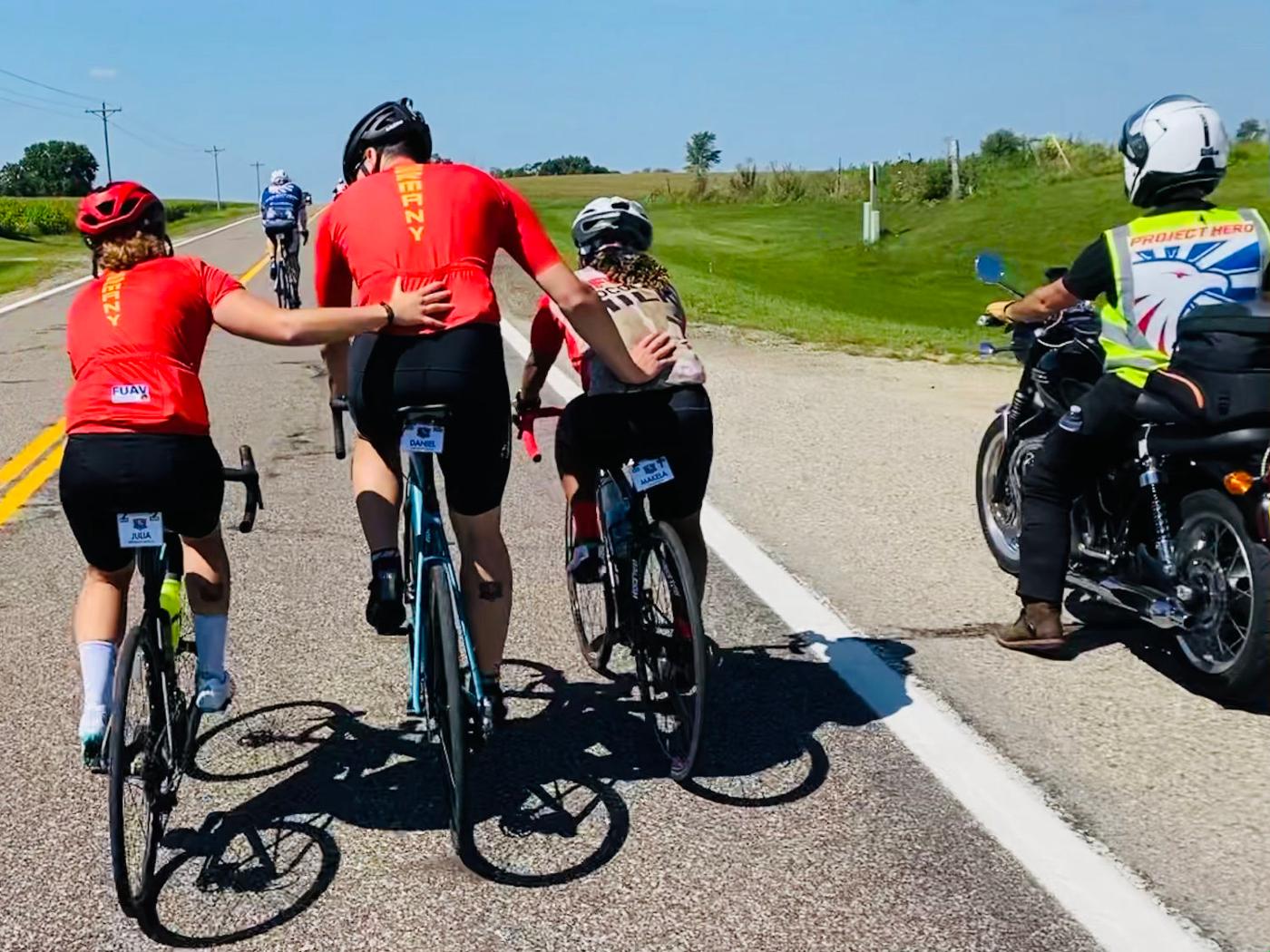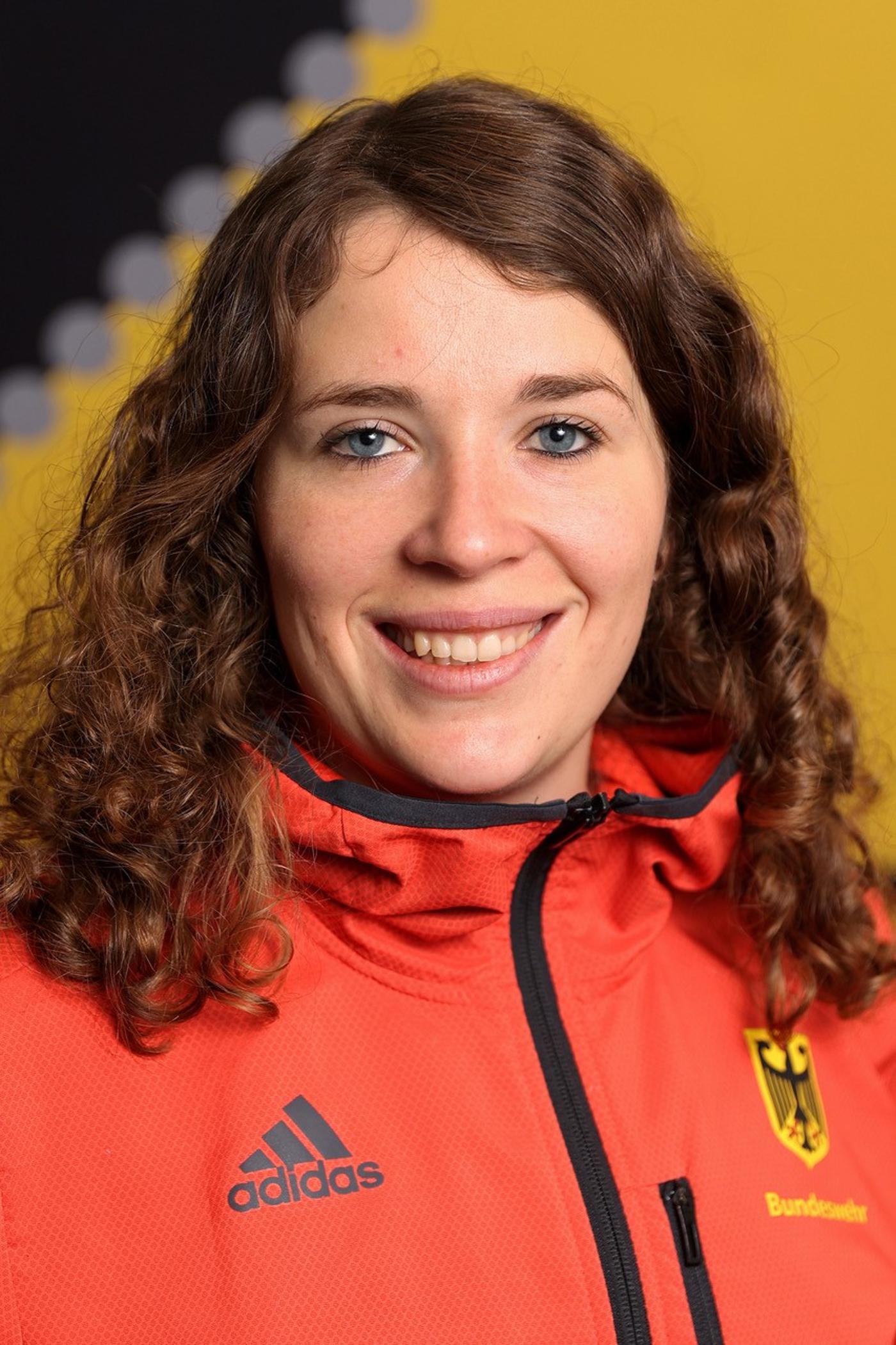Embracing resilience: representing comrades at the Invictus Games 2023

As the 2023 Invictus Games begin, my heart is filled with a myriad of emotions. The Games provide an opportunity for wounded, injured and sick service personnel and veterans to participate in international sporting competition, and also support broader programmes of rehabilitation and recovery. My journey to the Games has not only been about me, but also about representing the unbreakable spirit of my fellow soldiers who are unable to take part in this remarkable event. Let me take you back to the moment when my world came crashing down and I discovered the true meaning of resilience.
From injury to Invictus
My journey with the Bundeswehr began in 2011. My role within the Military Police branch involved assuming leadership responsibilities concerning personal protection and intervention. When I joined the Bundeswehr, I didn't just want a job; I wanted to challenge myself and do something meaningful in a world with a lot of conflicts. I've always felt that being in the military is more than just work, it's a part of who I am.
In 2019, a service-related injury abruptly upended both my military career and private life, leaving me grappling with emotions I had never felt before. The loss, uncertainty and fear of an ambiguous future were overwhelming. I had always been someone who charged forward, never allowing anything to hold me back from my goals. But this time, life had other plans.
In this challenging time, I discovered an incredible support system through the Group for Sport Therapy and the Center for Sports Medicine of the Bundeswehr. These dedicated professionals not only assisted in my physical recovery but also provided helpful rehabilitation strategies. They taught me that strength doesn't come solely from physical abilities, but also from perseverance and fortitude. The doctors helped me set recovery goals, and one of those goals was to compete in the Invictus Games.
The Invictus Games were founded in 2014 by Prince Harry, after he visited the US Warrior Games in 2013. Having just returned from deployment with the United Kingdom's armed forces as part of NATO's multinational mission in Afghanistan, Prince Harry was inspired to create a similar event on an international scale. The first Invictus Games were held in London in 2014, with 400 athletes from 13 participating countries. The 2023 event in Düsseldorf will be the sixth Invictus Games, with 550 athletes from 21 countries competing in 10 different sports.

cycling training
Before my injury, I loved playing football, but during my recovery, I found a new interest in swimming and cycling. Swimming wasn't something I ever thought I'd do. But life took a turn, and I had to change how I saw things. I looked for ways to find something positive from my accident, like the higher tolerance for pain that I have developed, which has allowed me to explore new experiences such as ice swimming in frigid waters. Today, I am stronger than ever before. Every stroke in the water and every step I take shows how strong I've become.
As I slowly rebuilt my life, the Invictus Games became a source of inspiration and motivation. The idea of athletes overcoming their own challenges through the power of sport deeply touched me and continues to motivate me every day. The thought of becoming a part of this incredible movement ignited a fire within me - a fire that burned even brighter when I was chosen to represent Team Germany.
An indescribable honour.
Joining this team is an indescribable honour. It's not just about the competition; it's about being a voice for all those facing adversity. The camaraderie among athletes is electrifying. It's as if we share an unspoken bond, understanding each other's struggles and cheering each other on. In the team, you meet people who have also faced tough challenges in life. It's a level playing field where we connect on a deeper level. Moreover, the focus isn't on what we've lost, but rather on what we still can achieve. For over a year, we've been getting ready for the Invictus Games. We've been training hard at the Sportschule in Warendorf. Each training camp has given me more energy to keep going. Our team is amazing, and we stick together like a family.
As the Invictus Games draw closer, excitement and anticipation course through my veins. The thought of competing on home soil fills me with pride and joy. It's a unique opportunity to showcase resilience, not only to Germany but to the world - to demonstrate the importance of never giving up, no matter how challenging life may be.
The preparations and organisation have been impeccable, a testament to the organisers' commitment to creating an unforgettable experience for all of us. For this I am immensely grateful. The positive energy surrounding the event is palpable, like a tidal wave of hope and determination, ready to crash onto the shores of Düsseldorf.
And now, as the time approaches and I stand among my fellow athletes, I feel a mix of emotions ranging from excitement to nervousness and gratitude. This journey is about much more than personal achievement in competition, or even in rehabilitation. It's about being a voice for the silent warriors, for those who could not be here. The Invictus Games Düsseldorf 2023 will not just be a celebration of sport; it will be a powerful testament to the tenacity and strength of the human spirit.
The Invictus Games must be a catalyst for greater rehabilitation efforts
As I recovered from my injury, I was fortunate to have leaders who believed in my potential and never put additional obstacles in my way. Together, we celebrated every small victory, and they gave me the space I needed to rehabilitate.
However, I also know that not everyone receives the same level of support during their recovery process, and that there is still a need for education in many units. Some service personnel encounter obstacles or do not receive the understanding and empathy needed to manage their issues. It is crucial for leaders at all levels to undergo training and gain knowledge about the rehabilitation process. Understanding the physical and mental struggles their team members face is essential in providing the most meaningful support. With good structures and investment, leaders can foster a culture of compassion and care and create a safe environment where everyone feels heard and valued.
Supportive leadership goes beyond the rehabilitation phase; it fosters a culture of empowerment and trust within an organisation. When leaders believe in the potential of their team members, it motivates individuals to excel and become stronger versions of themselves.
We can see the positive impact of this style of leadership at the Invictus Games - behind every athlete is a network of support, including from leaders. I hold a deep conviction that this type of thinking should endure beyond the Games, which are far more than just a sporting spectacle. It is essential that we seize this opportunity to make the Invictus Games a catalyst for positive and sustainable change, both within Germany and at a global level.
To achieve this, I call on politicians and decision-makers to recognise the significance of the Invictus Games and invest in the programmes and initiatives that make it possible for athletes to compete.
First and foremost, we must focus on bolstering rehabilitation programmes and ensuring that they remain accessible to all those in need. These programmes, like the invaluable support I received from the Group for Sport Therapy and the Center for Sports Medicine of the Bundeswehr, provide not only physical healing but also essential strategies to cope with the emotional and mental toll of life-altering injuries.
Secondly, supporting health care more broadly is of the utmost importance. The journey of recovery is not limited to physical healing; it also encompasses healing the invisible wounds that impact the well-being of veterans, police officers, firefighters, and all those who have endured trauma.
And thirdly, we must invest in initiatives like the Invictus Games themselves, and the Invictus Games Foundation, which provide opportunities for athletes to build communities and international networks of support, give greater visibility to the successes of injured and wounded service personnel, and inspire others on their journeys of recovery.
To the politicians, I urge you to see the Invictus Games as a beacon of hope and an opportunity for positive change. The impact of your decisions reaches far beyond the playing fields and can touch the lives of countless service members and veterans, along with their families, colleagues and communities. Let us unite in the pursuit of a world that values and supports those who serve and protect, not only during the Invictus Games but for generations to come.
The winding path to recovery and resilience
Like the Rhine that flows through this year's host city, Düsseldorf, and is represented on the 2023 Invictus Games emblem, the rehabilitation process is not a straight line. It's a journey filled with twists and turns, highs and lows, but also with beauty and strength. It reshapes you, changes you, makes you stronger. The Invictus Games and the Rhine remind me that the beauty of life lies in facing challenges and still moving forward, even when the path is not straightforward. While life sometimes takes us on detours, it also offers the opportunity to evolve and grow.
When I first joined the Bundeswehr, I could not have imagined myself where I am today. Now, I'm a research officer and a PhD candidate at the University of the Bundeswehr in Munich. For my PhD, I looked into the Afghanistan mission and came up with a plan for how different military forces can communicate better in the future. Soon, I'll be going to the NATO Defense College in Rome, where there will be new things to learn and do. Training, being part of the team, and improving myself has shown me how important every experience is. The Invictus Games are more than just a challenge - they're a journey to discover who I am. And that journey continues in all parts of my life - personal, professional and athletic.
As I stand ready to embrace the Invictus Games with open arms, I carry the hopes and dreams of my fellow comrades in my heart. This is not just a sporting event; it is a celebration of life and human strength. This is not just my journey; it is a collective journey of courage, unity, and lasting change. I call on everyone to rally behind the spirit of the Invictus Games, to take a stand for those who sacrifice so much, and to ensure that this remarkable event leaves a lasting legacy of healing, unity and support. Together, we can build a world that honours and uplifts those who have faced adversity with unwavering strength and the undying spirit of never giving up. Let the Invictus Games be the catalyst for a brighter future. May the games begin, and may the flow of life continue to lead us in unpredictable yet wonderful ways.

Captain Julia Eyrich
ABOUT THE AUTHOR
Captain Julia Eyrich is affiliated with the military police unit and currently works as a researcher at the University of the Bundeswehr in Munich. Her dissertation evaluated military communication strategies during NATO's multinational mission in Afghanistan, leading to the development of an international communication concept for future missions. She will soon take on a new role at the NATO Defense College in Rome.